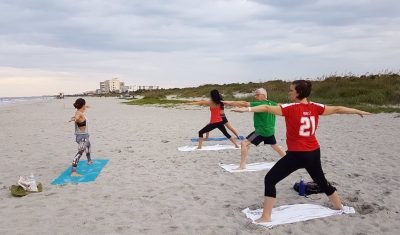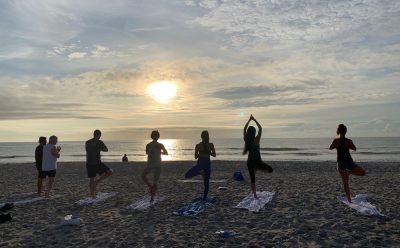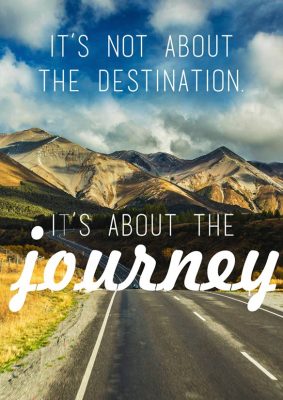And what I really learned…

On August 14th and 15th, I attended my first testing conference, ever. Even though testing has always been part of my 30+ year career, I have never had an official testers role. I never even thought of myself as a tester until now. I went to this conference with the intention of getting some ideas on a quality process that could be used for the various projects here at UConn. I dream of the day when all employees are thinking about quality and have a quality mindset.
I was initially a little wary about meeting a bunch of seasoned software testers because I had found the role almost by accident, and I still didn’t really feel like a tester. Even though I have been studying testing strategies for the last three years, I still felt like a newbie. I am happy to say, though, that my fears were completely unfounded. Everyone at the conference was super helpful and encouraging. And as I talked to more people, I found that almost no one started out their career as a software tester. Either they fell into the role by accident, or they were assigned the role on a temporary basis and then fell in love with it.
Even some of the talks and keynotes were about the various ways people found themselves in their testing roles or how their previous roles helped them when they started testing. Titles such as “Being a Tester after trying almost everything else,” “What Writing Taught me about Testing,” and “The Every Day Tester” all gave accounts of the surprising (and sometime humorous) paths people took to being a tester. All of the talks were interesting and insightful, and the testing concepts were coming so quickly that I could hardly keep up. I am still reviewing my notes and the training materials they shared.
There was also a sense of mindfulness throughout the whole conference and in many of the talks. Software testing uses a lot of thinking processes and practicing mindfulness really seems to improve those processes. There was even a sunrise yoga session every morning on the beach and a quiet room that could be used for meditation or just sitting at any time during the conference, of which I took full advantage.


As I had expected, I came away from the conference with some great ideas for improving the quality processes at UConn and I can’t wait to introduce them to the team. (I am still organizing them at this time.) What I did not expect, however, was that the whole experience would have me reflecting back on my career and reevaluating some key turning points. I started to realize that every one of the turning points in my career, some of which I thought were negative things, were really some of the best things that could have ever happened to me at that time. I could see that every step of my career was actually setting me up for this testing role. Here is what I mean:
My last three years in the Navy: Navy Instructor – I was inserting faults in a training Missile Fire Control System of a submarine so a crew of seven people could learn how to solve these problems during a missile firing exercise. Of course, the system was on land. It consisted of a whole room full of equipment that was identical to what was on a submarine, and another room that contained a room full of equipment that simulated all of the other submarine functions.
What I learned about testing here was how important it is to look at the whole system. Without realizing it, I was learning about testing backwards. Instead of looking for issues by operating the system while testing, I was inserting issues and noticing how they showed up during operation. This provided me with a great framework of systems theory going forward. Something I did not know I needed at the time.
First job fresh out of the Navy: Technical Support Engineer – In this role, I developed and conducted training for Field Service Engineers. This included hardware and software training. The hardware system contained numerous technologies such as lasers, optics, cameras, pneumatics, vacuums, and electro-mechanical devices – all in one system. The software was proprietary (being created by the company) and the training for these machines included creating defects (in either the hardware or the software) that the students had to troubleshoot as a complete system.
What I learned about testing here was how a small problem in one area could show up in a completely different part of the system, with different symptoms. Installing defects in the system and seeing how those defects manifested during normal operation continued to build my systems perspective of finding issues in large, complex systems.
The business was sold to a German company. New Title: Systems Engineer – In this role, I was still doing the same things as above, but added a few more duties. Besides going from a team of six to a team of one, I added software tester and release coordinator to the list. Although testing the software took up the majority of my time, I still did not think of myself as a software tester. Much of the testing at this point required building test fixtures for the equipment so we could establish a base level of operability that the software could perform.
What I learned about testing here was how important it was to maintain a good working relationship with the developers. We were finding problems every day and I was feeling bad about pointing out the failures so often, so I learned to be gentle in my approach. But when we all realized that we were only making the software better and more robust, and that it made us more productive, we were working well together. We were working so efficiently and releasing new options and products so quickly that we were making our competitors nervous. One day, one of our competitors was looking to buy us out. The next day, we were out of business and bankrupt. Apparently, the investors got nervous and froze our accounts.
Back to the original company. New Title: Business Support Specialist – At first I thought this was a completely different role. But it was still testing software, just web software, and learning a new ERP system: SAP. This time, based on user inputs, I was able to go through the process of developing the requirements for new functionality on the web site that interfaced heavily with SAP; testing and documenting the changes while creating a new User’s Guide. Strangely, I still did not think of myself as a tester. I felt more like I was gathering facts for the user documentation.
What I learned about testing here was the importance of soliciting the users’ inputs. Also, how important it was to test all fields on a web site for all kinds of data: numbers, min/max characters, special characters, etc. I also learned the importance of verifying the data to and from the ERP system. Sadly though, the company reorganized, moved the development offshore, and I was out of work again.
To my Current Position: QA Analyst – I almost didn’t apply for this job because of the title. But when I read the description, I realized that I had been doing this for the last 30 plus years. As I researched the testing field further, I found that there were many schools of thought on the subject. Additionally, the projects at UConn provide plenty of variety, so every project comes with its own unique set of testing challenges, which keeps it fun and exciting!

What I really learned from this conference was more of an appreciation for the testing role. There is so much more to testing than meets the eye. Being at the conference caused me to reflect on the past to the point that all of the perceived struggles and disappointments were really just course corrections (blessings). If I had known that everything was going to work out so well, I might have enjoyed the journey more. Well, I can’t go back in time, but I can definitely change my thoughts going forward.
So I have learned to enjoy every moment of my life, both at work and at home, no matter how difficult it may seem at the time. It’s not always easy, but things always seem to work out for the best, even if you do not realize it at the time. Some people go through their whole life not realizing that all the joy is in the journey. And then, as soon as they reach that goal, they are only there for a fleeting moment before they begin their next journey to their next goal. Most of our life is spent in the journey, so shouldn’t we learn to enjoy it?
Thanks for reading!